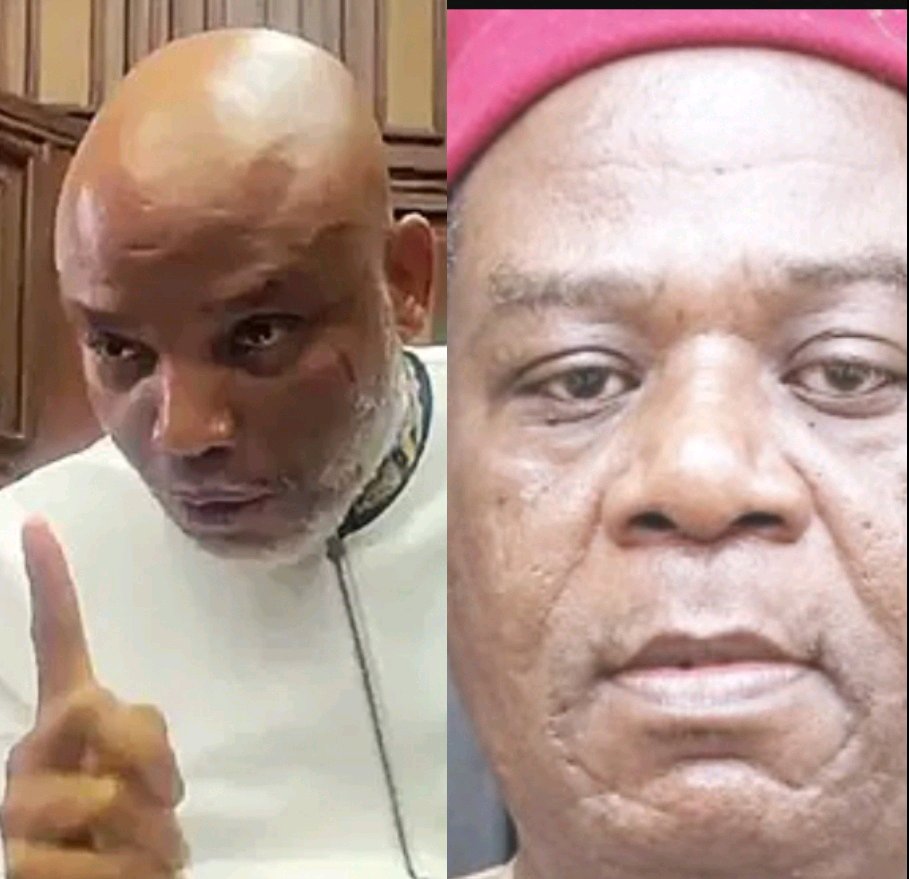According to The Sun News, Chief Johnny Ucheaga, a lawyer with over forty years of experience at the Bar and a former National Administrative Secretary of the defunct National Centre Party of Nigeria (NCPN), addresses key national issues in this interview.
He also offers unsolicited advice to the Peoples Democratic Party (PDP), urging senior figures to sit down and study the party’s constitution carefully.
When asked why many Nigerians interpret the United States’ threat of military intervention against Islamist militants, including Boko Haram, as criticism of the APC-led federal administration, he said the situation is regrettable.
He believes the All Progressives Congress’ failures have exposed Nigeria to international contempt.
He describes it as tragic that successive governments allowed Islamic militants and Boko Haram to operate and carry out atrocities for nearly 17 years without a coordinated, strategic response to stop their brutality.
He added that President Donald Trump was convinced by the October 15, 2025, Fact-Finding Mission report, which affirmed claims of a genocide against Christians in Nigeria.
The mission’s leader, former U.S. Ambassador Lewis Lucke, noted that in 2010 Nigeria was comparatively peaceful a rising economy that enjoyed religious tolerance and was widely seen as pushing back against radical Islam. Back then, violent incidents were infrequent and drew national outrage.
The country then had few internally displaced persons (IDPs) and limited conflict a sharp contrast to what followed, when Boko Haram’s escalation produced a 1,200 percent increase in IDPs by 2011. Asked how the country deteriorated so fast, he said the answer is simple: institutions are failing.
He contrasted this with a U.S. example: during the campaign for New York City’s mayor, President Trump openly opposed Zohran Mamdani, who is Muslim, yet Mamdani prevailed because America’s electoral institutions functioned votes were counted and the will of the people prevailed.
He argued Nigeria can reach that standard only when security agencies are impartial, INEC becomes genuinely independent in practice (not just in name), and citizens defend their ballots so leaders reflect popular choice rather than godfathers’ wishes.
He contends that the insurgency has political dimensions, which explains why President Trump warned of possible military measures to target bandits, Boko Haram and similar terror groups whose violence rose sharply after 2014.
For him, Trump’s warning should prompt President Bola Tinubu’s government to rethink and adopt a tougher, more strategic response to national insecurity.
On the Nnamdi Kanu matter, he said Igbo leaders have pursued diplomacy and continued negotiations with the federal authorities a path they hope will not be undermined by provocative acts from some of their followers.
Whether people heed their leaders’ counsel is ultimately a personal choice, he noted. In the Southeast, he added, shop closures are a routine occurrence, so an extra day of shutdown is not unusual.
He said, “Nnamdi Kanu said he is defending himself because his lawyers are too afraid to mention names.”
Kanu, however, insists he will name those he claims are involved during court proceedings and promises to reveal hidden facts that, he says, will rattle the nation.
Observers warn the case has moved beyond courtroom technicalities into a clash between truth and authority courage against intimidation.
Oba Rilwan Akiolu, the Lagos traditional ruler, has cautioned the federal government about the risks if Kanu defends himself in open court, calling it one of the boldest and most dangerous moves in Nigeria’s history.
Chief Ucheaga concluded that, given the tensions and political elements, the dispute is likely to be settled through political negotiation rather than purely legal means. View, More,
Explore More News By Using The Button.

